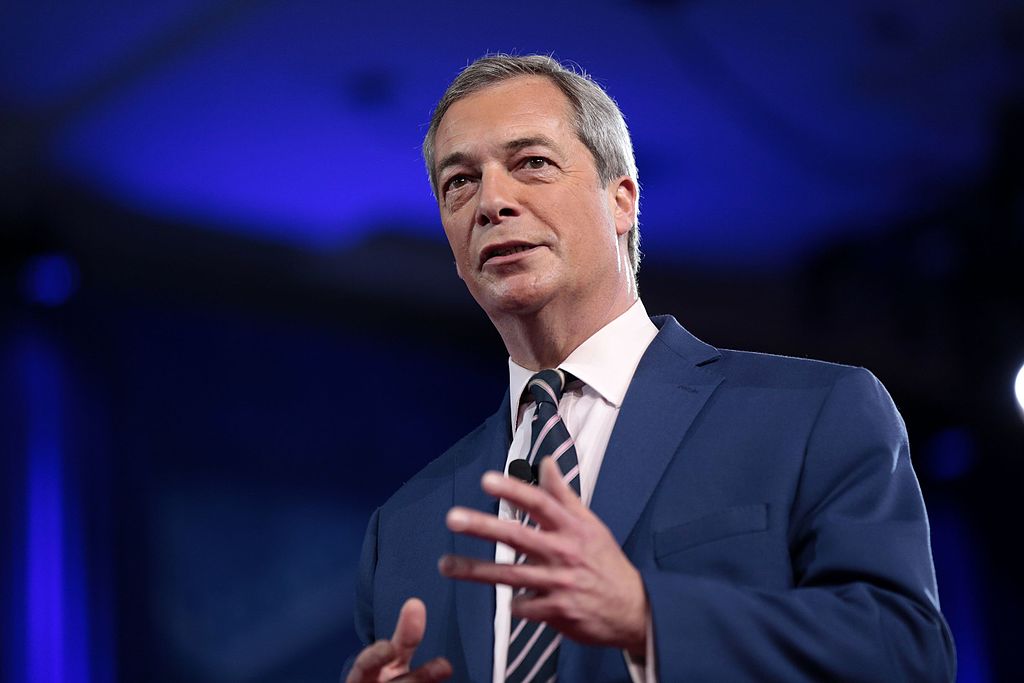Nigel Farage, or the danger of banks getting political
Nigel Farage is back, and he has made a striking allegation about financial services in the UK. In a video posted on social media on 29 June, Farage claimed that his bank of more than 40 years suddenly announced that it would be closing his personal and business accounts with no explanation. He blamed the decision on “serious political persecution” from an anti-Brexit banking industry, and warned that it might affect his ability to live in the UK. Farage’s bank has since disputed the reasoning. Whatever you think of Farage, the potential ramifications of this story are dangerous ones. Here’s a look at the Farage case, and what happens if banks let politics influence access.
Farage said that he was classified as a “politically exposed” person, or PEP
Farage said that he was classified as a “politically exposed” person, or PEP. Generally, people classed as PEP present a higher risk for financial institutions, as they are deemed to be more exposed to potential involvement in bribery and corruption by virtue of their position and influence. Banks are therefore required to do extra due diligence on them. Farage suggested that the “only explanation I can think of” for the account closure was a claim made by Chris Bryant MP in the House of Commons that the former politician had received nearly £550,000 from the Kremlin-backed TV channel Russia Today. The claims, made under the protection of parliamentary privilege, have been strongly denied by Farage and have since been disproven.
Andrew Griffith, economic secretary to the Treasury, said in a letter to the Financial Conduct Authority that while he recognised the importance of anti-money-laundering measures, “it is crucial that an appropriate balance is struck” so elected officials and their families can access banking. He wrote that it had been “made clear” that “some financial institutions may be failing to strike the right balance of taking a proportionate approach based on a careful evaluation of the actual risk”. The letter added: “The government is clear that domestic PEPs should be treated in a manner which is in line with their risk, and that banks should not be closing individuals’ accounts solely due to their status as a PEP.” Elsewhere, a Treasury spokesman said it would be a “serious concern” if financial services were being denied to those exercising their right to lawful free speech. It is currently investigating payment providers over account closures.
An update to the story offered an alternative explanation – according to reports, Farage fell below the financial threshold required to hold an account at Coutts, a prestigious bank for the wealthy. Coutts requires its customers to borrow or invest at least £1m with the bank, or hold at least £3m in savings. Farage did not dispute this fact, but said that there was no issue regarding the threshold for the last 10 years. He has since been turned down by nine other lenders, and said: “Are you telling me that all the other banks say it was a PEP thing and Coutts wasn’t? Draw your own conclusion.” Farage was offered a standard personal account at NatWest, which owns Coutts – the two sides dispute when the offer was made, and the former UKIP leader says such an account is of little use to him anyway.
Frankly, whether or not Farage’s bank account was shut down for political reasons, it’s noteworthy that this is just the latest in a run of stories on a similar theme. Last year, PayPal closed down three accounts associated with the journalist and campaigner Toby Young (one of them, in an ironic move, belonged to his anti-censorship organisation the Free Speech Union). The same thing happened to UsForThem, a group that campaigned against Covid school closures. Both were told that they had violated the service’s ‘Acceptable Use Policy’, but all of the accounts were reinstated after government and social media backlash – it was widely believed that these bans were linked to the politics of the account holders.
These let you receive wages and pay bills in an economy where it’s ever more likely you won’t be able to use cash – imagine having that basic facility withdrawn, if leaders of banks or even the state don’t like your political views
Banking and access to financial services is increasingly essential in order to participate in the modern economy – this is why there is a legal obligation among the larger banks to provide so-called Basic Bank Accounts, free to anyone who needs one. These let you receive wages and pay bills in an economy where it’s ever more likely you won’t be able to use cash – imagine having that basic facility withdrawn, if leaders of banks or even the state don’t like your political views.
Let’s go over to Canada last year, and the trucker protests. There was a rule in force that mandated all truckers must be vaccinated to cross the US-Canada border or quarantine on return – there were protests, involving blocking highways, and they evolved into a broader anti-vaccine protest. But financial penalties followed. People were encouraged to support the protest on GoFundMe, so the platform blocked and withheld donations. Then Prime Minister Justin Trudeau evoked the 1988 Emergences Act, allowing banks to freeze the personal accounts of anyone linked with the protests without the need for a court order, in an unprecedented act. It was later reported that people who donated to the convoy might were also in line to have their accounts frozen.
Trudeau’s inclination towards being illiberal is hardly surprising, but it’s a chilling example of the state using its clout to financially strangle viewpoints it disagrees with. Whether or not that is what happened with Nigel Farage, it doesn’t counteract the fact that financial bodies are taking baby steps towards using their powers to punish people who disagree with them – that’s something we need to speak out against, or it will eventually be our turn.

Comments